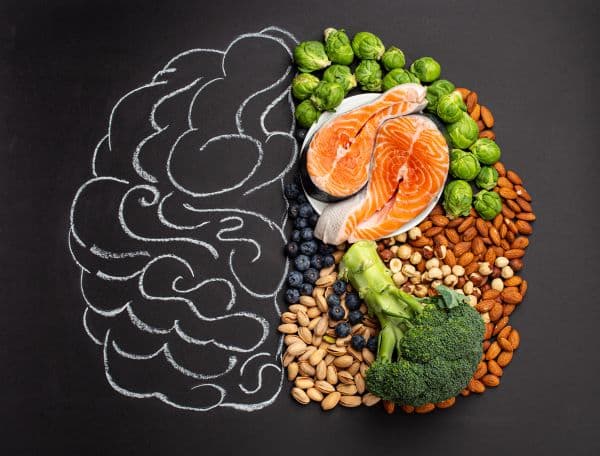Memory is an indispensable tool in the tapestry of human cognition, pivotal for navigating the complexities of daily life. From the intricate process of learning new skills to the simplicity of recalling a cherished moment, memory weaves through the essence of our existence. In an era where information overload has become commonplace, the ability to enhance and preserve memory has never been more critical. Amidst the myriad challenges to cognitive health in the modern world, from digital distraction to lifestyle-induced stress, this article embarks on a journey to unveil effective strategies for enhancing memory. With a blend of scientific insights and practical advice, it aims to empower readers to fortify their cognitive resilience and unlock their full potential.
Contents
Understanding Memory

Memory is the foundation of our cognitive processes. It is a complex system encompassing various types, each with its unique role and function. Sensory memory acts as the initial filter, capturing fleeting impressions of our surroundings. Short-term memory, or working memory, processes and retains information temporarily for immediate use. Long-term memory, on the other hand, stores information more permanently, from factual knowledge to personal experiences. Understanding these distinctions is crucial for recognizing how different strategies can target and improve specific aspects of memory.
Factors that affect memory are multifaceted, ranging from genetic predispositions to lifestyle choices. Age naturally influences cognitive decline, but lifestyle factors like stress, sleep quality, and nutrition play pivotal roles in memory performance. High-stress levels can impair cognitive function, while adequate sleep is essential for memory consolidation, where short-term memories are transformed into long-term ones. Nutrition also has a significant impact, with certain diets and nutrients enhancing cognitive health. Recognizing these factors is the first step towards adopting strategies to mitigate their negative effects and enhance memory.
The Role of Diet in Memory Enhancement

Dietary habits profoundly impact memory and cognitive function. Nutrients such as omega-3 fatty acids, found in fish and flaxseeds, play a crucial role in brain health, supporting neural development and protecting against cognitive decline. Antioxidants and vitamins, particularly B, D, and E, combat oxidative stress and inflammation, which can damage brain cells. Incorporating a diet rich in these nutrients can bolster brain function and enhance memory, making dietary choices a powerful tool in improving cognitive health.
Conversely, certain foods and habits can be detrimental to memory. High sugar intake, excessive alcohol consumption, and a diet dominated by processed foods can exacerbate cognitive decline and impair memory function. These dietary pitfalls can lead to inflammation and oxidative stress, harming neural pathways critical for memory. Individuals can significantly improve their cognitive health and memory performance by making informed choices to reduce or eliminate these harmful elements and embracing a nutrient-rich diet.
Exercise and Physical Health

Physical exercise is beneficial for the body and the brain, enhancing cognitive functions, including memory. Aerobic exercises, such as walking, swimming, and cycling, increase heart rate, boosting blood flow to the brain. This enhanced circulation delivers more oxygen and nutrients to the brain, supporting neurogenesis (forming new neurons) and improving overall brain health. Regular physical activity has increased the size of the hippocampus, the brain area involved in verbal memory and learning, thereby providing a buffer against cognitive decline.
Strength training and yoga also offer significant benefits for cognitive health. While aerobic exercise improves overall brain function, strength training has been linked to improved executive function, attention, and working memory. On the other hand, yoga promotes physical flexibility and stress reduction and enhances memory and cognitive functions through mindfulness and meditation practices. Integrating these forms of exercise into a routine can create a well-rounded approach to enhancing memory and cognitive resilience.
Cognitive Exercises and Brain Games

Engaging in mental stimulation through cognitive exercises and brain games is akin to building muscle strength through physical exercise. Activities that challenge the brain, such as puzzles, chess, learning a new language, or playing a musical instrument, stimulate neural networks and can improve cognitive function, including memory. This mental exercise promotes brain plasticity, the brain’s ability to reorganize itself by forming new neural connections, enhancing cognitive agility and memory retention.
Incorporating cognitive exercises into daily routines maximizes their benefits. Just as physical exercise requires consistency to achieve lasting results, mental fitness benefits from regular, varied challenges. Digital platforms offer many brain-training apps designed to target specific cognitive skills, making it easier to engage in cognitive workouts. Setting aside dedicated time each day for brain games or learning activities can foster a habit that supports ongoing cognitive health and memory enhancement.
The Power of Sleep in Memory Consolidation

Sleep plays a crucial role in memory consolidation, the process by which short-term memories are solidified into long-term memories. During sleep, particularly in the deep and REM (rapid eye movement) phases, the brain processes and organizes the day’s experiences and information, integrating them into the neural network for long-term storage. This nightly cognitive “housekeeping” ensures that memories are stored efficiently, making them more accessible for future retrieval. Therefore, prioritizing sleep quality and quantity is not merely about rest; it’s about allowing the brain to strengthen and preserve memory.
Improving sleep quality to enhance memory consolidation involves adopting habits that promote restful sleep. Establishing a consistent sleep schedule, minimizing exposure to blue light from screens before bedtime, and creating a comfortable, distraction-free sleep environment can significantly improve sleep quality. Additionally, relaxation techniques such as meditation or reading can help ease the transition to sleep, further supporting the brain’s memory consolidation processes. By prioritizing sleep, individuals can enhance their ability to learn and remember, making sleep a critical component of any memory enhancement strategy.
Stress Management Techniques

Stress, particularly when chronic, can hurt memory and overall cognitive function. The release of stress hormones like cortisol can impair synaptic regulation, leading to memory loss and a decrease in the brain’s ability to store and retrieve information. Recognizing the impact of stress on memory is the first step toward mitigating its effects and enhancing cognitive health.
Effective stress management strategies are essential for preserving and enhancing memory. Techniques such as mindfulness meditation, deep breathing exercises, and yoga can reduce stress levels and improve cognitive functions, including memory. Time management and organizational skills can also alleviate stress by preventing the overwhelm that often leads to cognitive overload. By incorporating these stress-reduction techniques into daily life, individuals can protect their cognitive health, ensuring that stress does not become a barrier to effective memory function.
Social Connections and Memory

Social interactions and strong connections are vital in cognitive health and memory enhancement. Engaging in meaningful social activities stimulates the brain, providing cognitive challenges that can strengthen memory and other cognitive functions. Furthermore, emotional support and a sense of community can reduce stress and depression, factors known to negatively affect memory.
Building and maintaining social connections in today’s digital age requires intentional effort. Participating in community groups, volunteering, or joining clubs that align with personal interests can provide valuable opportunities for social interaction. Online platforms can also facilitate connections, offering forums and social networks geared toward shared interests. By fostering these social relationships, individuals can enhance their cognitive resilience and memory, underscoring the importance of social connections in maintaining brain health.
The Bottom Line
Enhancing memory is a multifaceted endeavor involving a combination of healthy lifestyle choices, mental exercises, and emotional well-being. From the foods we eat to the quality of our sleep and the strength of our social connections, each aspect plays a crucial role in supporting and improving our cognitive health. Individuals can significantly enhance their memory and overall cognitive function by adopting strategies that address these various elements. It is a journey of small, consistent steps toward a healthier brain and a more resilient memory. The strategies outlined in this article offer a comprehensive approach to memory enhancement, empowering readers to take control of their cognitive health and unlock their full potential.


